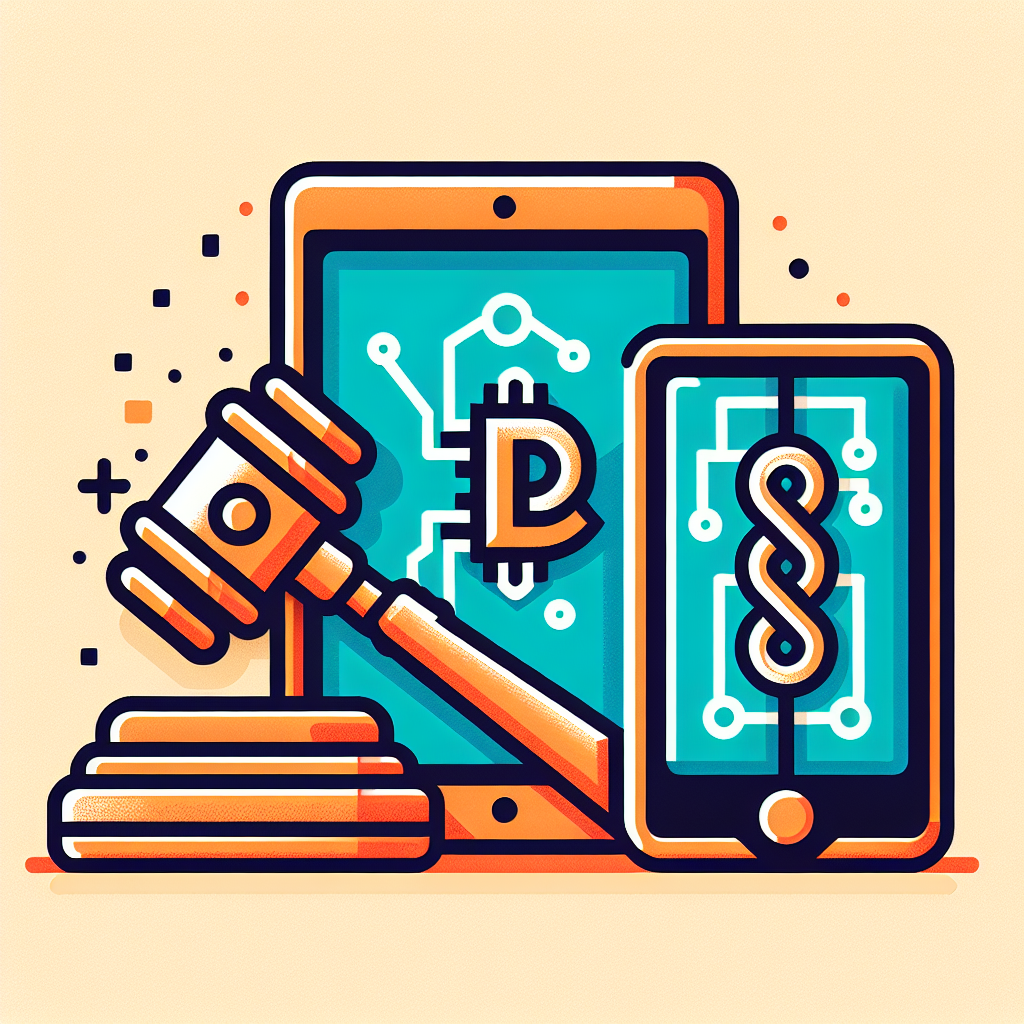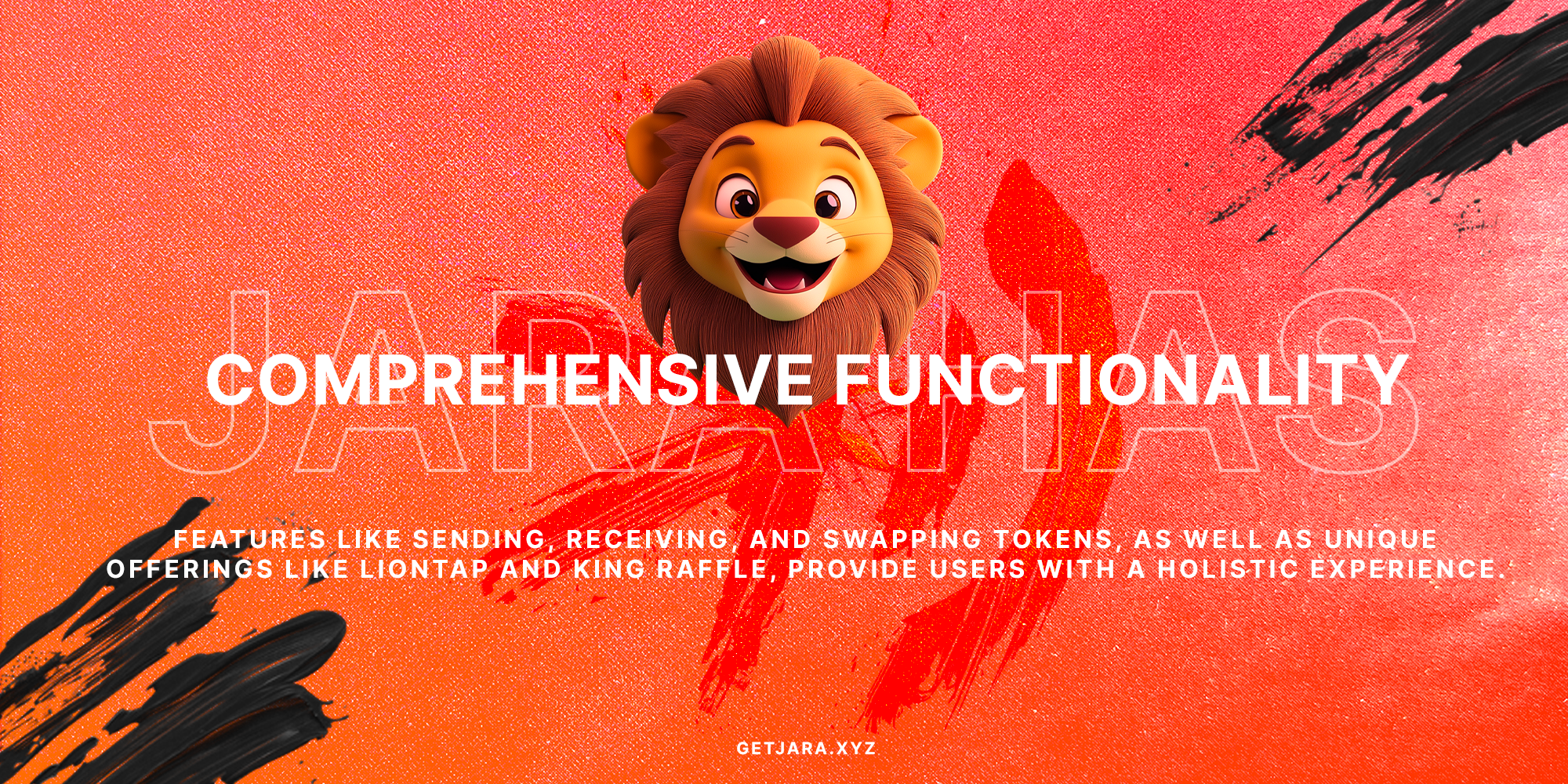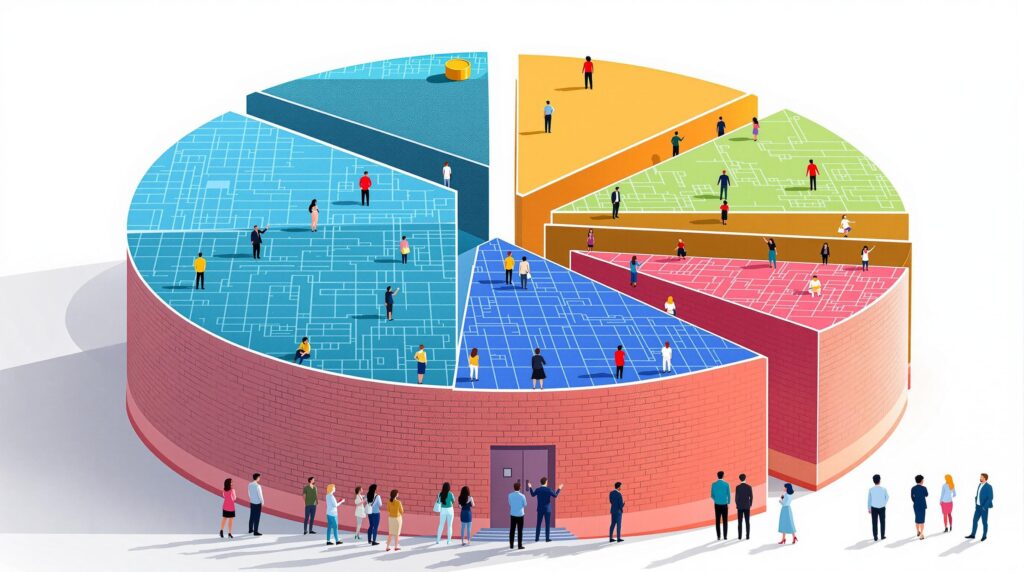Introduction to Smart Contracts
Dive into the world of smart contracts and discover how they’re transforming industries globally, particularly in Africa. So, what exactly are smart contracts? They are revolutionary, self-executing agreements where the terms are coded directly into a blockchain. This means that once certain predefined conditions are met, the contract automatically enforces itself, effectively eliminating the need for middlemen.
What are smart contracts? Smart contracts are self-executing contracts with the terms of the agreement directly written into code, stored on a blockchain, and executed automatically when predetermined conditions are fulfilled.
The magic of smart contracts lies in their ability to streamline processes by eliminating intermediaries. Imagine the traditional call of duty in industries like banking, real estate, and supply chains. These industries typically rely on lengthy paperwork, multiple verification stages, and a slew of agencies to finalize agreements. Smart contracts, however, can complete these tasks with remarkable efficiency and transparency.
Why Smart Contracts Improve Efficiency
One might wonder, how do smart contracts enhance efficiency? They do so by automating and securing transactions, thereby reducing processing time and costs. For instance, in real estate, a smart contract can automatically transfer ownership once payment has been verified, bypassing traditional bottlenecks associated with title transfers and escrow services.
Imagine this: Buying a property is as simple as transferring your smart contract-based funds, and voilà, ownership is yours in minutes without the hassle of intermediaries.
The efficiency of smart contracts extends across diverse sectors. From facilitating transparent supply chain management by tracking the provenance of goods to securing sensitive medical records, their applications are vast. In Africa, where infrastructure constraints pose significant challenges, the implementation of smart contracts is not just complementary but transformative.
Cost Reduction Through Automation
Another key advantage is cost reduction. By automating tasks traditionally performed by various service providers, smart contracts minimize costs associated with administrative overheads. In banking, they can process transactions at a fraction of the typical cost, making banking services more accessible to populations in remote regions of Africa.
Additionally, the deployment of smart contracts in the African context speaks volumes about innovation meeting necessity. This digital leap could align with Jara’s initiatives, such as the $6 billion Lagos airport project. Just as Jara seeks to connect global capital with African assets, smart contracts can provide the foundational underpinning for large-scale infrastructure projects—thus potentially fueling a $200 billion digital asset economy.
Smart Contracts in Diverse Industries
The use of smart contracts is not confined to financial transactions. For example, the entertainment industry might utilize them to ensure artists are paid instantly for their work. Or consider healthcare: securing patients’ medical records to provide uninterrupted care across different providers and regions.
Smart contracts hold the potential to foster transparency and integrity in sectors traditionally plagued by mistrust and inefficiencies.
In essence, smart contracts not only simplify processes but also bring about a higher degree of trust and security, essential elements for growth, particularly in emerging markets. By removing intermediary risks, they give stakeholders confidence in system integrity, thereby accelerating the digital landscape’s evolution.
The relevance of these developments is underscored by traditional contracts’ evolution towards smart systems that leverage algorithmic precision and immutability features. As blazingly fast digitization becomes the norm, industries will inevitably continue to gravitate towards systems that provide expedited, secure, and cost-effective solutions.
This content is optimized for keywords around smart contracts, their efficiency, and industry impact, ensuring good SEO performance while making the reader interested in our law firm’s service offerings related to these sectors. The content is formatted for WordPress integration, with diverse headers, callouts, and contextual links to relevant topics and services.
Banking: A Revolution with Smart Contracts
In the fast-evolving world of finance, the introduction of smart contracts represents a groundbreaking shift in the banking industry. Traditional banking processes often face challenges related to delays, high fees, and security concerns. Smart contracts offer a more secure, transparent, and efficient alternative, especially for cross-border transactions and loan agreements.
Imagine never having to wait days for a bank transfer to clear or worrying about the hefty fees that come with it. Smart contracts execute transactions automatically when predetermined conditions are met, making the process swift and error-free. By eliminating intermediaries, they reduce transaction costs and risks associated with traditional banking methods.
Benefits for Consumers and Banks
Smart contracts bring a myriad of benefits to both consumers and banks. For consumers, the most immediate advantage is reduced transaction fees and faster processing times. This is particularly transformative for cross-border payments, which historically take days to complete. With the decentralized nature of blockchain technology, transactions can happen instantaneously and at a fraction of the cost.
Banks, on the other hand, stand to gain enhanced data security and operational efficiency. The transparency and immutability of the blockchain ledger ensure that every transaction is recorded and verifiable, reducing fraudulent activities. This level of security builds trust and enhances the bank’s reputation among its clients.
What is a smart contract? A smart contract is a self-executing contract with the terms of the agreement directly written into lines of code, designed to automatically execute transactions when conditions are met.
Smart contracts also support the creation of decentralized finance (DeFi) platforms, allowing users to access financial services without needing traditional banking infrastructure. This democratizes finance, making it accessible to a wider audience, particularly in regions with limited banking services, such as parts of Africa where Jara aims to bridge the gap.
“Jara: Unlocking the Future to Africa’s Crypto Ecosystem” – By leveraging $JARA tokens and blockchain, Jara enables secure, fast, and low-cost transactions across the continent.
Through the incorporation of smart contracts, banks can streamline their processes and focus more on customer experience rather than administrative tasks. Additionally, as referenced in studies by Good Firms, smart contracts can facilitate more innovative banking products, catering to the needs of modern consumers.
The implementation of blockchain and smart contracts isn’t just about moving money faster; it’s about empowering people with the ability to manage their assets more efficiently. In this way, they fundamentally reshape how we interact with financial institutions. As these technologies mature, we can expect the banking landscape to become far more integrated, intuitive, and inclusive.
Blockchain’s potential in banking is not just in efficiency but in offering a secure way to manage finances, paving the path for a new era of digital banking.

Healthcare: Enhancing Data Management and Patient Care
Imagine a world where a patient’s medical records travel seamlessly from one healthcare provider to another without missing a beat. Thanks to smart contracts, this is becoming a reality, particularly in Africa where healthcare systems are poised for transformation. Smart contracts, with their ability to streamline data management, are revolutionizing how medical records and insurance claims are both handled and processed. Let’s dive into how these digital agreements are redefining healthcare.
Integration and Security of Medical Records
What if your health history could be accessed by authorized medical professionals instantly, no matter where you receive care? That’s the potential with smart contracts. These contracts ensure medical records are securely stored in a decentralized database, providing a comprehensive and accurate health history that follows the patient. This eliminates the fragmentation often seen when patients switch doctors or healthcare networks.
What are smart contracts? Smart contracts are self-executing contracts with the terms of the agreement directly written into lines of code, which run on a blockchain.
Streamlining Insurance Claims
Dealing with insurance claims is notoriously cumbersome, fraught with delays and inaccuracies. Through smart contracts, insurance claims can be processed using trustless agreements that automatically verify claims against pre-set criteria without the need for human intervention. This not only speeds up the process but also minimizes human errors, ensuring patients receive timely reimbursements and insurance coverage.
Enhancing Patient Privacy and Data Security
With every healthcare visit, patient data is generated, necessitating robust privacy measures. Smart contracts provide heightened security features such as cryptographic encryption, ensuring that only authorized parties can access sensitive patient information. This builds patient trust in the healthcare system, crucial in regions with diverse healthcare standards like Africa.
Aiding in Research and Population Health Management
In healthcare research, accurate data collection and analysis can lead to groundbreaking medical discoveries. By using smart contracts, healthcare providers can share anonymized patient data across networks in compliance with ethical standards. This could dramatically improve public health outcomes by enabling more informed decision-making and policy development.
Real-World Applications and Future Prospects
Across Africa, there are burgeoning initiatives aimed at implementing smart contracts in healthcare. As these continue to develop, the benefits will extend beyond patient care to encompass efficiencies in the entire healthcare ecosystem, including cost reductions and enhanced patient outcomes. Organizations and innovators like Jara are at the forefront, aligning with Africa’s digital revolution to ensure economic empowerment remains a priority.
“Jara- Unlocking the Future to Africa’s Crypto Ecosystem.”
For more information on how smart contracts are being used across different industries, explore how they are powering decentralized finance and transforming traditional sectors.
Real Estate: Streamlining Property Transactions
Have you ever experienced the headache of buying or selling a home, buried under piles of paperwork and back-and-forth negotiations? The real estate sector is notorious for its cumbersome processes, but smart contracts are here to change the game. Leveraging blockchain technology, these digital contracts overhaul the traditional means of property transactions, making them more straightforward, faster, and secure. By automating processes and ensuring contract fulfillment without the need for intermediaries like escrow agents or notaries, smart contracts are redefining how we think about real estate.
Advantages for Buyers and Sellers
When it comes to the benefits for buyers and sellers alike, smart contracts offer a revolutionary take. Firstly, they significantly reduce paperwork by digitizing the agreements right from the start. This not only saves trees but also time, ensuring that everyone is on the same digital page. Fraud prevention is another critical advantage; since smart contracts are stored on a blockchain, they are nearly impossible to alter once they’re in place. This increases trust in the transaction and minimizes the risk of fraudulent activities.
For anyone who’s waited in anticipation for a property transfer to finally be completed, the increased transaction speed offered by smart contracts is a game-changer. The entire process becomes automated, with funds released and legal ownership transferred in near-real time, once previously agreed-upon conditions are met. This obviates the need for the drawn-out waiting and anxiety that traditionally accompany property deals.
What is a smart contract? A smart contract is a self-executing agreement where the terms are directly written into code and executed automatically upon meeting certain conditions.
Smart contracts have become an essential tool in modern real estate, providing efficiency and security that are unmatched. By cutting out the middleman, these contracts allow property transactions to be more transparent and cost-effective. But how else does this technology extend into the financial lives of buyers and sellers?
- Cost-Efficiency: Without the need for escrow services and lengthy agent negotiations, transaction costs can be greatly reduced, benefitting both parties.
- Transparency: Every action and condition tied to the contract is transparent and verifiable, encouraging fair deals.
- Accessibility: The real estate market opens up globally as international buyers gain easier access to secure transactions.
In the heart of Africa’s digital transformation, companies like Jara are pioneering the adaptation of smart contracts in real estate, especially through their ambitious projects such as the $6 billion Lagos airport tokenization. Jara’s commitment to utilizing smart contracts for property transactions is a testament to the potential benefits these technologies promise to African real estate markets and beyond.
With each step taken, from initial negotiations to the final transfer of ownership, smart contracts increasingly promote a new era of transparency and efficiency. Isn’t it time the real estate world stepped into the future?
For those looking to dive deeper into the transformative power of smart contracts in various industries, this exploration of use cases in Africa provides further insight into how they’re redefining traditional systems.

How do smart contracts impact the insurance industry?
Smart contracts streamline the insurance industry by automating claims processing and ensuring transparent and reliable agreements. This reduces administrative costs, speeds up claim settlements, and minimizes the need for human intervention, ultimately enhancing customer satisfaction.
What role do smart contracts play in supply chain management?
Smart contracts enhance supply chain management by optimizing tracking and logistics processes. They provide real-time updates and ensure accountability and accuracy by automating agreements between suppliers, manufacturers, and consumers. This improves efficiency and can greatly reduce fraud.
- Real-time Monitoring: Provides accurate tracking of goods.
- Transparency: Ensures all stakeholders have access to the same information.
- Efficiency: Reduces delays by automating processes.
In what ways are legal services being transformed by smart contracts?
Smart contracts are transforming legal services by automating repetitive tasks, such as standard contract agreements, thereby saving time for both lawyers and clients. They ensure that conditions of a contract are met without the need for legal intervention, decreasing costs associated with traditional law practices. For more insights, explore how smart contracts are reshaping legal tech.
Can smart contracts replace lawyers entirely? While they automate many processes, smart contracts currently supplement rather than replace the nuanced judgment willed by legal professionals.
How are smart contracts utilized in supply chain transparency?
Smart contracts improve supply chain transparency by providing a decentralized method of recording every transaction. This ensures that all parties have access to a tamper-proof history of product origins and movements. Such transparency helps in fostering trust and accountability between parties. Learn more about their impact on supply chain transparency.

Related Practice Areas
Explore our diverse range of related practice areas that complement our expertise in the field of smart contracts and automation.
Discover What Our Clients Are Saying
At the forefront of our Smart Contracts & Automation practice is a deep-seated commitment to client satisfaction. Each case is handled with utmost care, as echoed in the appreciative feedback from those we represent.

Unlock the Potential of Smart Contracts with Our Expertise
Smart contracts are at the forefront of technological innovation, paving the way for transformative changes in industries like banking, healthcare, and real estate. As these self-executing contracts become integral to modern business practices, having expert legal guidance is essential to navigate this evolving landscape. That’s where we come in!
“Our legal team is dedicated to harnessing the power of smart contracts to streamline your business operations, while ensuring compliance and safeguarding your interests.”
Whether you are a startup exploring automation for the first time or an established firm looking to optimize existing processes, our specialized knowledge in smart contracts ensures you’re ahead of the curve.
- Custom Solutions: We provide tailored strategies to fit your unique business needs.
- End-to-End Support: From drafting to execution, our experts guide you through every step.
- Trusted Experience: Benefit from our depth of experience in both law and technology sectors.
Ready to revolutionize your business operations? Contact us today and download the Jara App to start your journey towards innovation with smart contracts.
Top 5 Industries Being Disrupted by Smart Contracts – Explore how innovative technology is reshaping traditional sectors.
Understanding Smart Contracts
Smart contracts, a fundamental component of blockchain technology, are self-executing contracts with the terms directly written into lines of code. But what makes them so revolutionary? Let’s dive into the industries they’re set to transform.
Key Industries Affected by Smart Contracts
1. Financial Services
“Financial services stand at the forefront of smart contract adoption, promising efficiency and security enhancements.”
Smart contracts automate and streamline the processing of transactions, reducing the need for intermediaries and significantly cutting costs.
2. Real Estate
The real estate sector is leaping forward, with smart contracts facilitating seamless property transactions. These contracts eliminate the traditional paperwork overload, ensuring quick and transparent deals.
3. Healthcare
Offering a solution to data management issues, smart contracts enable secure and efficient sharing of medical records, improving patient care and operational efficiency.
4. Supply Chain Management
Transparency and traceability in supply chains are vastly improved with smart contract implementations.
Smart contracts ensure that all parties in a supply chain adhere to the terms, automating compliance and reducing fraud risks.
5. Insurance
In the insurance industry, automation of claims processing through smart contracts leads to faster payouts and reduced costs, benefiting both insurers and policyholders alike.
The Future of Smart Contracts
As the technology advances, these sectors—and potentially more—will see further disruption and innovation, driven by the efficiency and reliability of smart contracts.

















